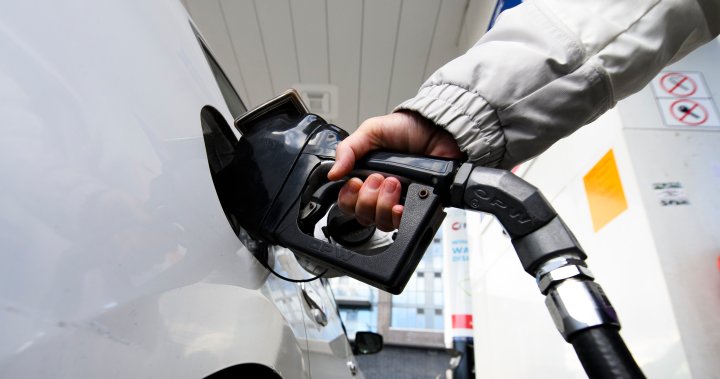Four conservative premiers are expected to tell a House of Commons committee this week that Prime Minister Justin Trudeau should ditch the planned increase in the federal carbon tax, set to take effect on Monday.
Premiers Scott Moe, Danielle Smith, Blaine Higgs, and Tim Houston had all written letters to the chair of the House of Commons finance committee, Peter Fonseca, seeking a chance to testify at that committee about the impact a rise in the carbon tax would have on their provinces. There are no scheduled meetings this week or next of the finance committee and Fonseca, a Liberal MP from London, On., had no plans to call one.
But the Conservative MP who chairs the House of Commons government operations and estimates committee, Edmonton’s Kelly McCauley, is expected to offer those four premiers a chance to testify beginning as early as Wednesday.
McCauley’s committee is in the midst of an examination of the 2024-2025 main estimates, the government’s spending plan for the next fiscal year. And since the federal price on carbon involves a rebate paid out to consumers in provinces where the carbon tax is collected, the issue is germane to the study underway by the operations and estimates committee.
All four premiers are expected to testify via videoconference. Saskatchewan’s Moe is expected to go first on Wednesday. Moe will follow a presentation by the Parliamentary Budget Officer, Yves Giroux.
Breaking news from Canada and around the world
sent to your email, as it happens.
Alberta’s Smith, New Brunswick’s Higgs and Nova Scotia’s Houston will all follow with their testimony and operations-and-estimates on Thursday.
Saskatchewan, Alberta and New Brunswick have all long opposed the federal carbon price, taking part in the constitutional challenge against the policy that ultimately went to the Supreme Court of Canada. The top court ruled that the federal government has the authority to implement a minimum price on pollution.
At this point, there is not a scheduled finance committee meeting before April 1, as the House of Commons is not sitting this week. March 29 is a federal statutory holiday for Good Friday.
The increase from $65 per tonne to $80 is set to take effect on Monday. In practical terms, this increases the federal fuel charge on gasoline from around $0.14 per litre to almost $0.18.

The carbon price is scheduled to increase annually until 2030, reaching $170 per tonne.
It’s been a political flashpoint in recent weeks with seven premiers, including Liberal Premier of Newfoundland and Labrador Andrew Furey, calling for a pause on the increase. This opposition is framed around the argument the carbon price compounds the current cost-of-living crisis.
Liberal MPs often argue that Canadians living where the federal price is in place ultimately get more back in rebates than they pay. However, a Parliamentary budget officer analysis found there’s a net loss when broader economic factors are taken into consideration.
Earlier this year, NDP Manitoba Premier Wab Kinew said he wants to revisit the role of the carbon price in his province.
Prime Minister Justin Trudeau and Environment Minister Steven Guilbeault have been adamant there will be no further carve-outs in the pollution price.
In October 2023, Trudeau announced a three-year pause on the carbon price applying to home heating oil due to high costs. While the program is national, critics say it disproportionately benefits Atlantic Canada.
Last week, Guilbeault said they cannot put it on pause because you can’t pause climate change. He added the price is expected to account for about 30 per cent of Canada’s contribution to reaching its 2030 emission targets.
Conservative Leader Pierre Poilievre introduced an ultimately unsuccessful non-confidence motion last week over the Liberals not pausing the carbon price increase. The Bloc Québécois and NDP voted with the government.
© 2024 Global News, a division of Corus Entertainment Inc.


